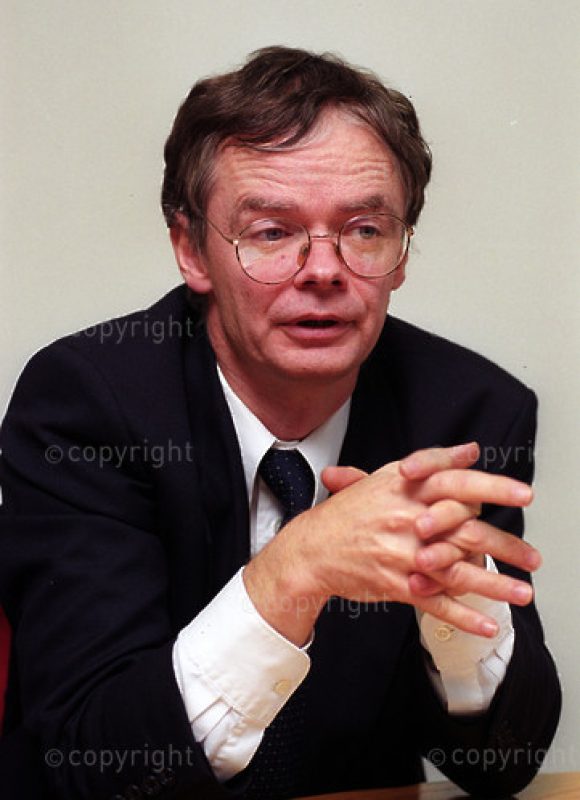PIONEER
Willie Hofmeyr

Human Rights Activist | Constitution drafter | Negotiator
Born : 22 November 1954.
“As a young activist, I studied law with the sole purpose of using it to fight the State by defending those who fell foul of the harsh laws of the apartheid system … My aim was, of course, like that of many others, to frustrate and defeat apartheid and usher in an era of justice, democracy and human rights. And that was, almost miraculously, exactly what we achieved. ‘Ready to govern!’ we proclaimed, and in some ways we were prepared … It was a euphoric time. With my peers, I lined up to take my oath in Parliament and took my seat on the Justice Committee. We had one of the most principled bills of rights in the world. We felt proud. We felt squeaky clean and new.”
Who is
Willie Hofmeyr?
Politician, lawyer, activist and African National Congress (ANC) member with an interest in human rights law.
Professions
and Roles
Deputy National Director of Public Prosecutions at the National Prosecuting Authority (NPA), politician, lawyer, ANC member, negotiator, Constitution drafter.
Best Known For
Hofmeyr is known for being a Member of Parliament (MP) in the first democratic Parliament in 1994, where he was a member of the Constitutional Committee of the Constitutional Assembly. He also co-chaired Theme Committee 5/Justice Portfolio Committee responsible for drafting legislation pertaining to the judiciary and legal system.
Life highlights
- Hofmeyr studied a BA in Economics and an MA in Economic History at the University of Cape Town (UCT) and then graduated with an LLB in 1989.
- Hofmeyr was active in student politics during his time at university, and joined the South African Committee for Higher Education (SACHED) and the National Union of SA Students (NUSAS) in the 1970s. For his involvement in student politics, he was banned for five years under the Internal Security Act.
- Hofmeyr worked for the Western Province Workers Advice Bureau and was involved with a number of left-leaning/communist activities like editing Abasebenzi – a monthly workers’ newspaper – until it was banned in 1976.
- Hofmeyr joined the United Democratic Front (UDF) at its establishment in 1983 and served on its provincial executive from 1987 to 1991. In the 1985 State of Emergency, Hofmeyr was detained for two weeks for his involvement in the mass democratic movement. In 1987, Hofmeyr took the apartheid government to court on behalf of the UDF, and due to the case’s success, the Western Cape was the only province where UDF meetings could organise public meetings freely.
- After Mandela was released in 1991, Hofmeyr was involved with negotiations to release other political prisoners on Robben Island who were still incarcerated in the lead-up to the Convention for a Democratic South Africa (CODESA).
- In June 1990, Hofmeyr was involved with the organisation of the Western Cape branch of the ANC’s campaigns.
- Hofmeyr was elected as an MP in 1994, and served until 1999. He served as the co-chair of the Justice Portfolio Committee which concerned itself with the chapter on the judiciary in the Constitution.
- During the Constitutional Assembly of 1994 to 1996, Hofmeyr acted as a member of the Constitutional Committee which dealt with deadlocked issues like socio-economic rights, property, the death penalty, the lockout clause, and the right to abortion.
- Hofmeyr was Parliamentary Counsellor to the then Deputy President Thabo Mbeki from 1998 to 1999.
- In 1999, he left Parliament and was appointed as the Special Director of Public Prosecutions and established the Asset Forfeiture Unit of the NPA.
IN THE WORDS OF OTHERS
“Our committee benefitted hugely from the many advisors who gave us the benefit of their knowledge and experience. For example, I recall Willie Hofmeyr almost single-handedly writing the clauses on the treatment of detained persons as well as the limitations clause.”
– Naledi Pandor, Minister of International Relations and Cooperation
Hofmeyr was arrested between 20 and 30 times for his involvement in the anti-apartheid struggle.
References
No references
